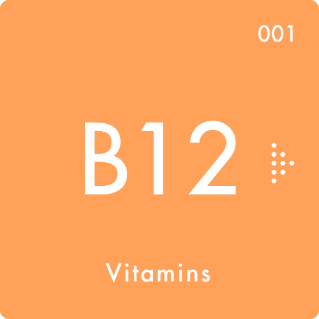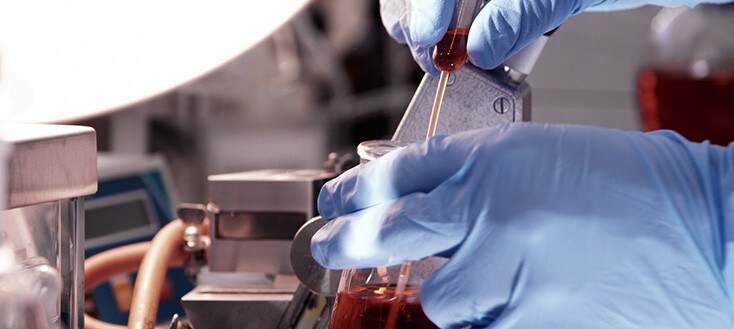
Health functions
Vitamin B12 (cobalamin) contributes to normal red blood cell formation, the immune system, heart health, and neurological and psychological functions. Read More

Vitamin B12 – the most chemically complex of all vitamins, found only in foods of animal origin, is unique among vitamins as it contains the metal ion cobalt. For this reason, compounds having vitamin B12 activity are called ‘cobalamin’.
In the human body, the vitamin B12 forms ‘methylcobalamin’ and ‘5-deoxyadenosyl cobalamin’ are used. Most supplements contain the form ‘cyanocobalamin’, which is converted in the body (1). Beside cyanocobalamin and methylcobalamin there are two further vitamers of Vitamin B12 called hydroxycobalamin and adenosylcobalamin.
Authored by Dr Peter Engel in 2010, reviewed and revised by Angelika Friedel on 29.06.2017

Vitamin B12 (cobalamin) contributes to normal red blood cell formation, the immune system, heart health, and neurological and psychological functions. Read More

Even slightly raised levels of the amino acid homocysteine in the blood can result in an increased risk of cardiovascular diseases, as shown in over 80 studies (3). Read More
Things to know about Vitamin B12
Pernicious anemia occurs when stomach cells are not able to produce a certain protein (‘intrinsic factor’), needed by the body to absorb vitamin B12. Symptoms include weakness, pale skin, diarrhea, weight loss, fever, numbness or a tingling sensation in the hands and feet, loss of balance, confusion, memory loss, and irritability. Read More
The recommended dietary allowance (RDA) of vitamin B12 (cobalamin) is dependent on age, gender, and other factors. Read More
Symptoms of vitamin B12 deficiency (or cobalamin deficiency) include numbness and tingling, difficulty walking, memory loss, disorientation, and dementia. Read More